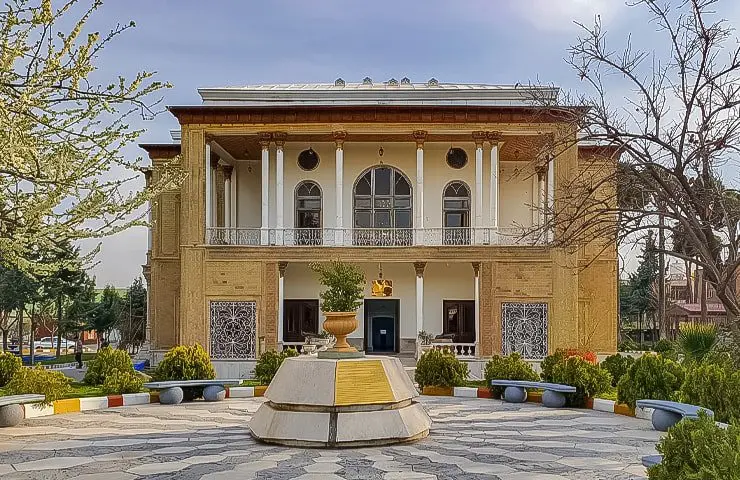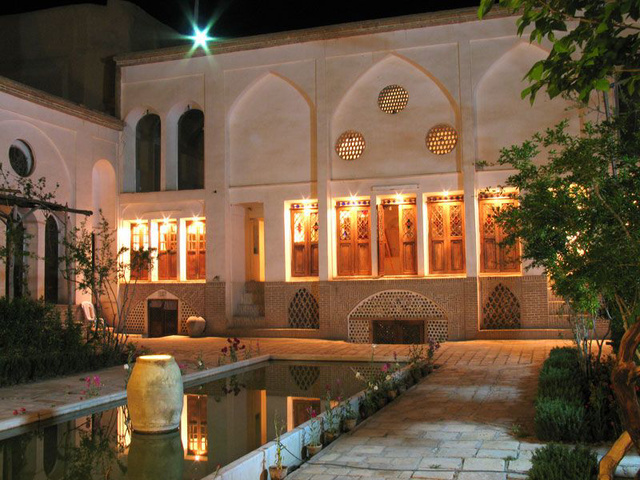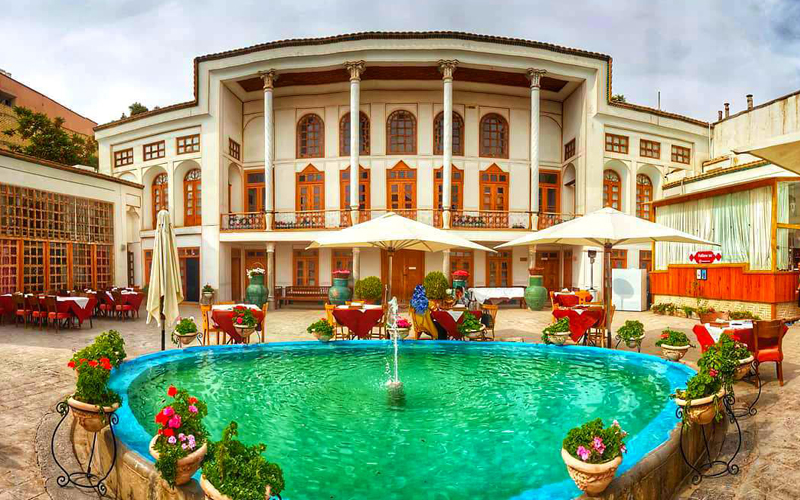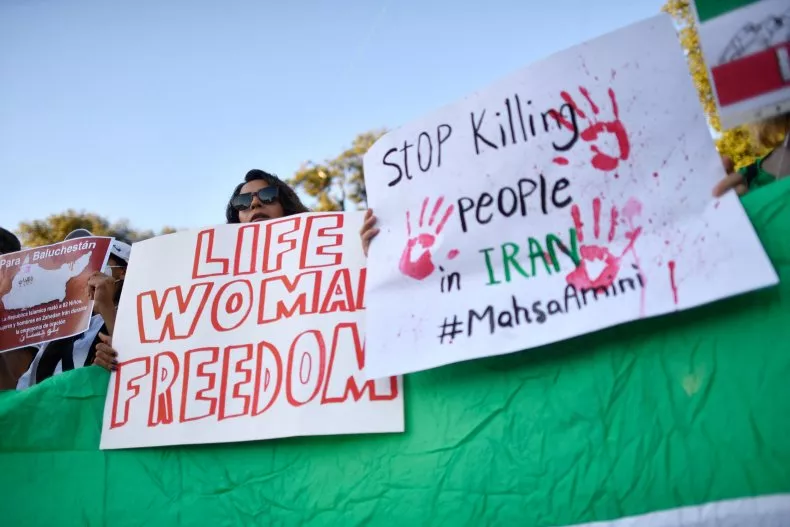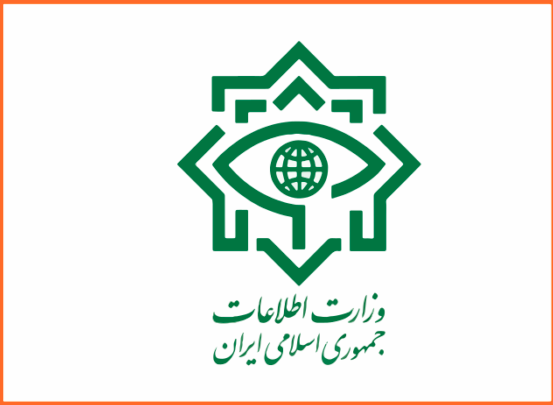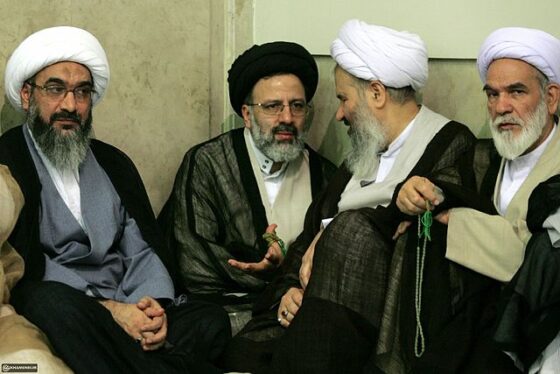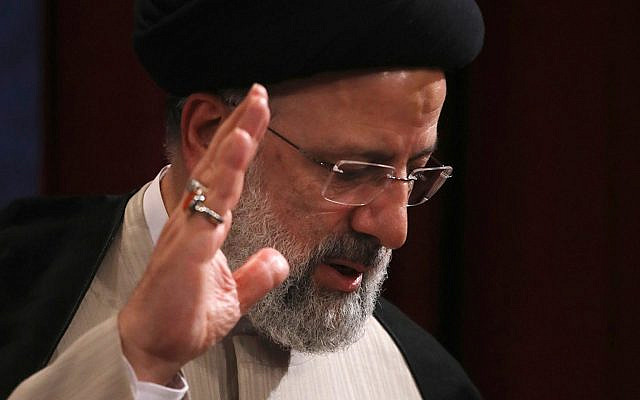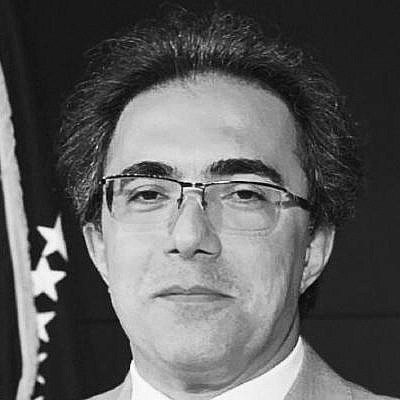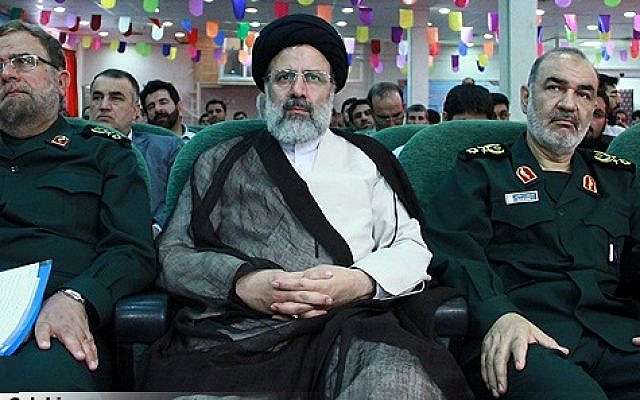Not so long ago, it seemed to Rudolph W. Giuliani that he would be presiding over a hefty part of the world.
Holding court a few nights after the 2016 election in a private cigar bar on Fifth Avenue, glass of Macallan at hand, Mr. Giuliani boasted to friends that President-elect Donald J. Trump would soon nominate him to the most prestigious of cabinet posts.
“How about,” Mr. Giuliani asked, “secretary of state?”
Chief global representative of the United States in war, peace and trade.
It would be a sublime reward for having thrown in with Mr. Trump when the respectable Republican establishment was keeping its distance, a fresh burst of stardom in a public life that had been fading fast. Mr. Giuliani made himself indispensable to the Trump campaign by doing dirty work that no one else wanted and trudging ahead even after the candidate lashed him with humiliations.
Three years on, Mr. Giuliani never got the job he believed he had coming — “a bitter disappointment,” his now-estranged wife says — but in his five decades as a public figure, he has never been more prominent in national affairs.
Step by step, he has escorted President Trump to the brink of impeachment. Mr. Giuliani himself is now under criminal investigation by federal prosecutors in the very office where he enjoyed his first extended draughts of fame nearly four decades ago. The separate troubles he has gotten his client and himself into are products of the uniquely powerful position he has fashioned, a hybrid of unpaid personal counsel to the president and for-profit peddler of access and advice.
Practically no name, other than Mr. Trump’s, was mentioned more than Mr. Giuliani’s at the impeachment hearings and in a subsequent Democratic report that described him as the hub of a grievous abuse of presidential power (or legitimate advocate for Mr. Trump, in the Republicans’ minority response).
A dozen witnesses testified over five days, and if Mr. Giuliani were somehow subtracted from their stories, there seems to be no one in or out of government who could take his place as the president’s man on the ground. No one to carry out a campaign to force a vulnerable ally, Ukraine, to damage a political opponent of Mr. Trump and undermine a special counsel investigation in ways that would help both Mr. Trump and an ally now in prison for laundering millions of dollars.
No impeachment train, picking up steam.
Mr. Giuliani has been the voice in Mr. Trump’s ear when others could not be heard, and served as the voice of Mr. Trump in places where presidents dare not go.
Each modern impeachment saga — of Richard M. Nixon, Bill Clinton and now Mr. Trump — has been shaped not by grievances over policy differences, but by human vanities and appetites. In this case, those include Mr. Giuliani’s, which have run in strong currents for decades, unconcealed.
The forces that have returned Mr. Giuliani to the stage at age 75 are the same ones that made him a star federal prosecutor as a young man, a memorable mayor of New York in the 1990s and a scorched-earth advocate for Mr. Trump in 2016: his relentless drive to put himself at the center of public life and his very high regard for his own virtuousness.
Patrick Oxford, a former law partner and chairman of Mr. Giuliani’s 2008 presidential campaign, who praises him as “a fine man,” says he has not changed.
“He’s just a whole lot more of what he was,” Mr. Oxford said. “I’ve noticed that political figures have a hard time retiring from the scene. I think my friend Rudy may be trying too hard to remain involved.”
[Watch a special episode of “The Weekly” about Rudy Giuliani’s wild, decades-long career. Available for Times subscribers in the U.S.]
His personal life has descended into the sort of well-appointed shambles that material wealth can disguise, though not necessarily make any less fraught.
A third marriage has fallen into divorce court ruins, revealing monthly expenses of $230,000 for six homes and 11 country club memberships. By taking President Trump as a client, he lost a position at a law firm in 2018 that paid him $6 million annually, according to court filings. In October, he broke with a partner in a security consultancy, a former police officer who had been at his side for three decades. He was so badly hurt in a fall two years ago that his wife put off divorce plans and looked after him for a while. She laments that before he appears in public, no one tells him that dye has given his hair an orange tinge.
He betrays no distress at any aspect of his life, only delight.
Working on a laptop at a restaurant table in the Trump International Hotel in Washington, he has bathed in the warm acclaim of friends and strangers who recognize him from his television advocacy. “I enjoyed the fact that people were coming by and tapping me on the back,” Mr. Giuliani said.
He was there so often, he said, that he set up a plaque.
Rudolph W. Giuliani
Attorney at law
“He doesn’t just like the spotlight,” his estranged wife, Judith Giuliani, said in an interview. “He craves it, for validation.”
She said she could scarcely believe he was working for Mr. Trump, given his disdain for people like Mr. Clinton, whom he saw as dishonest. But public attention, even refracted through Mr. Trump, was irresistible, she said.
Perhaps that helps explain the velvet-glove treatment he lavished on two Soviet-born American businessmen.
Mr. Giuliani brought one of them, a former penny-stock trader with a string of bad debts, to the state funeral of President George H. W. Bush last December.
And both men were Mr. Giuliani’s guests this year at an annual dinner he gives for a band of people, mostly city workers, knitted together after the Sept. 11 attacks.
Other guests were perplexed by the men’s presence.
Had they been at Ground Zero in 2001?
No, they had not.
They were part not of Mr. Giuliani’s past but of his wished-for future.
He deployed both men to find pressure points in Ukraine, and joined them in undermining an American ambassador. His intentions, he says, were pure. “As a person who finds public corruption a cancer,” Mr. Giuliani said, “I cannot ignore it.”
He may also have been trying to improve the chances for Rudolph W. Giuliani to persist into his ninth decade as an indispensable man.
The Thanks He Got
Poised to take off from La Guardia Airport, the Trump campaign plane had to wait for one more passenger. It was a chilly, cloudy Sunday in New York, the 9th of October 2016. That evening, Mr. Trump would debate his Democratic opponent, Hillary Clinton, in St. Louis.
Inside the custom-fitted Boeing 757-200, about 40 people were in their seats, including candidate Trump. They could not leave without one last person: Rudy Giuliani.
Why were they waiting for him?
That moment, as much as any, maps the ground between Mr. Trump and Mr. Giuliani.
They had known each other for nearly 40 years. Mr. Trump was the gaudy, gold-veneered developer who somehow navigated the shoals of organized crime, labor racketeering and official corruption in the New York real estate market of the 1980s, even as Mr. Giuliani was becoming so well known as a federal prosecutor that he kept a mental scorecard of his television appearances. (“Actually, it was only two nights,” Mr. Giuliani told a man in 1985 who mentioned he had just seen him five times on television. “Last week, it was five.”)
Image
With Mr. Trump as co-chairman of his first campaign fund-raiser, Mr. Giuliani ran unsuccessfully for mayor in 1989. He won the next time, in 1993, and served until the end of 2001. For the world, he embodied resilience following Sept. 11, a stature he would parlay into wealth but not a successful presidential candidacy. After a dismal showing in the 2008 Republican primaries, in which he spent more than $60 million and won no delegates, he and Mrs. Giuliani retreated to her family’s home in Florida. There he fell into what she called a lingering “catatonic” state. He never fully returned to his law firm, Bracewell Giuliani — “his specialty was being Rudy,” his ex-partner, Mr. Oxford, said — but in time resumed giving paid speeches and running a lucrative security consultancy.
As the years of Barack Obama’s presidency passed, Mr. Giuliani’s voice seemed to carry farthest when it was keyed to harsh or apocalyptic tones. Faintly echoing Mr. Trump’s falsehood about the president’s origins, he questioned Mr. Obama’s Americanism (“He wasn’t brought up the way you were brought up, and I was brought up, through love of this country,” he said). Apart from such flare-ups, he largely dropped out of public conversation.
“Before the 2016 election, Rudy was running around hawking Life Lock on commercials that ran at 2 a.m. on channel 83,” a longtime close aide said.
Mr. Giuliani had not raced to sign on with Trump 2016, waiting until the nomination was nearly inevitable, but few bigger names beat him to it.
Prominent Republicans who now style themselves devoted allies of Mr. Trump spoke of him then with acid revulsion or clenched-teeth neutrality. The campaign needed someone able to dial into a steady state of rage on a moment’s notice, even a high-mileage ex-politician scarcely known to a younger generation of voters.
Given a speaking spot of honor at the Republican convention, Mr. Giuliani roared: “There’s — there’s — there’s no next election! This is it! There’s no more time for us left to revive our great country!”
During the last three months of the campaign, he spun like a tornado from one television studio to the next or jetted around the country, at every stop hurling charges of corruption like boiling brimstone at anyone standing in Mr. Trump’s way.
“He’d do an event with then-candidate Trump, and then he’d speak at a different event with Pence and then do one on his own,” David Bossie, the deputy campaign manager, said.
None of that compared to his work on the Sunday when the Trump campaign jet waited at La Guardia.
Two days earlier, an off-camera tape from the television show “Access Hollywood” had been released of Mr. Trump speaking in crude terms about how his celebrity status gave him license to sexually assault women.
Mr. Trump’s usual surrogates — Kellyanne Conway, Reince Priebus, Chris Christie — had been booked to appear on the Sunday shows before the tape came out. When it did, they all bailed.
Then Mr. Giuliani stepped forward.
“Rudy was the only person willing to go on television to defend Donald Trump,” Mr. Bossie said.
Mr. Giuliani spent that morning rushing between studios — he appeared on all five major networks — pausing long enough to strike a penitential chord and write off Mr. Trump’s words as unfortunate locker-room talk.
Considering the circumstances, the campaign staff believed Mr. Giuliani had blunted the political blow Mr. Trump had inflicted on Mr. Trump. “Most people thought he did a great job,” Mr. Bossie said.
When Mr. Giuliani boarded the plane, spent from his labors, he strode down the aisle a conquering hero, swapping high-fives. Then he settled across from Mr. Trump.
Everyone could hear what the candidate said next.
“Man, Rudy,” Mr. Trump said, “you sucked. You were weak. Low-energy.”
Mr. Giuliani slumped in his seat, one witness said. The plane grew silent.
By day’s end, Mr. Giuliani was back in front of the cameras, claiming victory for Mr. Trump in the debate. And his most important work for the campaign was yet to come.
On Oct. 25, 2016, exactly two weeks until Election Day, Mr. Giuliani appeared on “Fox and Friends,” and was asked what the Trump campaign would do with the remaining time.
“We’ve got a couple of surprises left,” Mr. Giuliani said, chuckling but coyly refusing to be drawn out on specifics.
“I think he’s got a surprise or two that you’re going to hear about in the next few days,” he told another interviewer. “I mean, I’m talking about some pretty big surprises.”
Unknown to the public, the F.B.I. had recently obtained a laptop used by one of Mrs. Clinton’s aides that had not been examined during the investigation of her private email server. That inquiry had concluded in July without charges, but the newly discovered laptop contained about 50,000 emails that might have been relevant. F.B.I. agents planned to go through them in due course, but several ranking officials did not see that any mad rush was called for, the Justice Department inspector general would later report. They believed — correctly, as it turned out — that the emails would be similar to the hundreds of thousands already examined.
Then Mr. Giuliani began dropping those broad hints of a “surprise,” adding that he knew F.B.I. agents were very upset. It seemed apparent to Attorney General Loretta Lynch that leaks were coming from the New York office of the F.B.I., according to the inspector general. Faced with the likelihood that word of the emails would be coming out one way or another, the F.B.I. director, James Comey, announced a review of the newly discovered cache. It played as a stunning piece of news, a fresh gust of scandal 11 days before the election.
Mr. Giuliani would later deny that he had heard about the emails from F.B.I. agents, though he had bragged about that in broadcast interviews.
Years before, he had shown that working with virtually nothing, he could cultivate the mere existence of investigations to his political benefit. Early in his first term as mayor, facing criticism over patronage hires, Mr. Giuliani and aides announced spectacular claims that a widely respected commissioner in the previous administration, Richard Murphy, had overspent his budget by millions of dollars for political reasons. Moreover, computer records seemed to have been destroyed in a suspicious burglary. The heat shifted from the reality of Mr. Giuliani’s patronage hires to the wispy vapors of the Murphy investigation. A year later, it emerged that Mr. Murphy had neither overspent nor done anything wrong, and that no records had been destroyed or stolen. Mayor Giuliani shrugged.
“This happens all the time,” he said. “And you write about those things all the time. Sometimes they turn out to be true. And sometimes they turn out to be wrong.”
So it was with the emails. With two days to go until the 2016 election, Mr. Comey said the review of the material in the laptop had not changed the bureau’s view that Mrs. Clinton had not committed a crime. The unquantifiable damage, though, had been done.
Declaring victory on election night, Mr. Trump hailed his family and his campaign staff.
One more person was singled out.
“I want to give a very special thanks to our former mayor, Rudy Giuliani,” Mr. Trump shouted, to chants of “Rudy, Rudy.” “That Rudy never changes. Where’s Rudy? Where is he?” A moment later, spotting him, Mr. Trump called again, “Oh, Rudy, get up here.”
With that, Mr. Giuliani stepped onto the stage, holding his wife’s hand, joining the Trump family.
The Inner Circle
Representing the president of the United States was, Mr. Giuliani said, “kind of a once-in-a-lifetime opportunity.”
He grabbed it. He strode across the public stage as a man without border or boundary, Full Throttle Giuliani — “I am a high-functioning human being, able to outwork people half my age,” he told New York magazine — blending the rare opportunity to serve the president with far more ordinary chances to profit from his closeness to power.
He became a one-stop human bazaar for the trade of money, favors and influence, certain that he was incorruptible.
“I’m probably the most ethical person you ever met,” he said.
There are conflicting accounts of why Mr. Giuliani did not get the State Department position he campaigned for in 2016, and of whether anyone other than himself even thought it was a real possibility, but his years of lucrative consulting payments from foreign governments since leaving City Hall would certainly have made for a complicated Senate confirmation.
So he returned in January 2017 to his partnership at Greenberg Traurig. He was also running a consulting company, Giuliani Security & Safety, with mostly foreign clients.
Yet for all that, he seemed to be itching to get back inside.
Out of the blue, he would call John Dowd, an old colleague from their days as young lawyers. Mr. Dowd had known Mr. Giuliani as a 30-year-old prosecutor whose withering cross-examination drove a sitting congressman to halt his own trial and plead guilty.
Now, though, Mr. Dowd was the president’s chief lawyer in the special counsel’s investigation of Russian interference in the 2016 election. Mr. Giuliani would phone just to volunteer suggestions or help, Mr. Dowd said.
“When I had the lead,” Mr. Dowd said, “he always had my back.”
In year one of the investigation, President Trump went through multiple lawyers, including Mr. Dowd. By spring 2018, Mr. Trump was having a hard time getting top legal talent to work on the case.
Up stepped Mr. Giuliani, who said he would serve without pay.
The Trump administration turned out to be very good for the business of being Rudy Giuliani, though it was no simple matter to say precisely what that was.
“Probably in the last two years, people have talked to me about hundreds of deals,” Mr. Giuliani said this fall.
As an insurgent, Mr. Trump arrived in Washington without the camp followers of brand-name lobbyists and insiders who set up shop with each new administration. Their absence heightened the value of the few people known to have influence with Mr. Trump, like Mr. Giuliani. Before and after he became the president’s personal lawyer, he thrived.
He hired himself out to a Turkish money launderer, Reza Zarrab, and argued his case directly to the president and the secretary of state, Rex Tillerson, in the Oval Office. Mr. Zarrab had been accused of moving $10 billion in gold and cash to Iran, evading American sanctions. He eventually pleaded guilty and became a prosecution witness.
That was not the only piece of Turkish business Mr. Giuliani brought before the president, or so aides to Mr. Trump suspected. They believed that on his regular visits to the White House, he was pushing the president to deport a Turkish Muslim cleric — a prize sought by Turkey’s president, Recep Tayyip Erdogan, who saw the man as an enemy of his regime. Mr. Giuliani called the claim that he was lobbying on that issue “stupid” and untrue. Still, for a short time, his access to the Oval Office was curbed.
He got paid to promote an ethane-methane deal in Uzbekistan. His security consultancy signed contracts with the government of Bahrain and a Ukrainian-Russian developer. Other work included engagements with governments, groups, individuals and causes in Romania, Iran, Brazil and Venezuela.
Trying to dazzle a woman on a date, he took her to a reception on the rooftop of the Hay Adams Hotel thrown by a lobbyist for the Democratic Republic of Congo. The Congolese, who were hoping to get America to back off sanctions, wanted his advice on how to please the Trump administration.
He seemed taken aback when reporters questioned him about his private business clients. “I’m not going to answer any more of your goddamn questions because this is getting to be harassment,” he said in an interview last month.
One of those clients had cost him big dollars.
When he announced that he would be representing Mr. Trump, he said he would be taking a leave of absence from Greenberg Traurig. But his partners, and some of their clients, had had their fill of being associated with Mr. Trump. The firm said Mr. Giuliani was resigning. He said it was a mutual decision.
The loss of the $6 million income came with one consolation. No longer would Mr. Giuliani be subject to a moratorium on his TV appearances, imposed by the firm’s buttoned-down reticence. “The last year and a half, I haven’t been on television,” Mr. Giuliani said in May 2018. “Frankly, I’ve missed it.”
He returned to the airwaves with mesmerizing announcements and claims. Contradicting Mr. Trump, he said the president had indeed reimbursed one of his former lawyers, Michael Cohen, for the hush money paid to a pornographic film actress who said she had had a sexual encounter with Mr. Trump. A typical errand for a lawyer, he averred, though many begged to differ.
Mr. Giuliani denounced F.B.I. agents and federal prosecutors investigating the president and Mr. Cohen as thugs, storm troopers, bumbling. (Mr. Cohen, now in prison for his role in the hush-money scheme, said the investigators who raided his office had been polite; when he turned against Mr. Trump, he was declared a “scumbag” by Mr. Giuliani.)
Other lawyers on the Trump team were dismayed by his rhetoric, but Mr. Giuliani said it was tactical, regardless of how unhinged it seemed. Once he learned that the special counsel, Robert S. Mueller III, had decided that Justice Department policy forbade the criminal indictment of a sitting president, he said, he viewed impeachment as Mr. Trump’s only risk. That would be a public relations war, not a legal one, he explained, with the battles fought on television — an arena that Mr. Mueller did not contest. During his barrage, public opinion shifted slightly against an impeachment based on the Mueller findings, and Congress showed little appetite for pursuing it. Mr. Giuliani took victory laps.
With scant attention at first, he shifted the theater of combat away from television screens, and into murky Ukraine politics.
The Ukrainians
Without Mr. Giuliani’s push for money and frank yearning for relevance, the Trump Ukrainian initiative might never have amounted to much more than presidential tweetstorms. Mr. Giuliani compressed the digital gases of the president’s suspicions and wishful theories into what is now the molten core of impeachment.
Nothing shows how few limits Mr. Giuliani observed as plainly as his extended bear-hugs of Lev Parnas or Igor Fruman, his friends, clients and fellow emissaries for the president of the United States — the men he brought to his 9/11 dinner at the Maloney & Porcelli steakhouse in Manhattan.
In just about every snapshot from their travels, and there are many, Mr. Giuliani has a big grin on his face when he poses with Mr. Parnas and Mr. Fruman, two Florida men who were trying to hustle up business in Ukraine for an energy company they had just created.
They are simultaneously minor characters in the impeachment saga and very telling ones.
Mr. Giuliani may have been stopped from becoming secretary of state in 2017 by his business entanglements, but as Mr. Trump’s personal lawyer in 2019, he created and oversaw the dominant American foreign-policy channel with Ukraine, running the president’s affairs, his clients’ and his own through it.
That brought Mr. Parnas and Mr. Fruman into the president’s wake, sea gulls following an ocean liner.
When they met Mr. Giuliani last year, Mr. Parnas, born in Ukraine, and Mr. Fruman, a native of Belarus, were on the prowl for influence to help their companies, and over time would plow about $700,000 into political campaigns.
Mr. Fruman also had a business distributing luxury products in Ukraine, including yachts, jewelry, cars and electronics.
Mr. Parnas’s résumé includes work for companies that sold penny stocks in New York, a string of evictions and lawsuits in Florida and a judgment, now approaching $700,000, owed to an investor in a film project. He started a company called Fraud Guarantee, to provide due diligence services for investors. Like other business ventures of his, it was a bust. But it managed to pay $500,000 to Mr. Giuliani, who served as godfather for Mr. Parnas’s newborn son and attended the bris in Boca Raton, Fla.
The three men enjoyed private dinners in Washington, Florida, New York. Trips to Paris, Warsaw, Madrid. At a Yankee game in London, Mr. Giuliani, sporting one of the four diamond-encrusted World Series rings he’d gotten from the team, ushered them onto the field and into the dugout.
Image
Mr. Giuliani opened doors for them, and they reciprocated at an opportune moment.
Late last year, Mr. Giuliani began to pursue information in Ukraine that he believed might show that the Mueller inquiry was built on a false premise, that it was really Ukrainians who meddled in the election and then framed the Russians for it.
This had long been the claim of Paul Manafort, the former Trump campaign chairman, now serving seven and a half years in federal prison for laundering millions of dollars from the Russia-aligned political party in Ukraine.
Mr. Manafort maintained that he and Mr. Trump were victims of Ukrainian meddling that took two forms: the release of a mysterious slush fund ledger that detailed payments by the Russia-aligned party, including $12.7 million earmarked for Mr. Manafort; and the hacking of Democratic National Committee computers that was blamed on Russia.
“The original investigation came to me from an investigator who had a client who said that the Ukrainians were the ones who did the hacking,” Mr. Giuliani said in April. In addition, he said, he was told that the release of the ledger was a malignant act by Ukrainian forces hostile to Mr. Trump — and that it might be a forgery.
So, he said, he had a duty to Mr. Trump to run it down.
“I think if I didn’t do it, I wouldn’t be a good lawyer,” Mr. Giuliani said.
Far more than a lawyer serving a client in a legal matter, though, Mr. Giuliani continued his Ukraine project long after Mr. Trump was clear of any jeopardy from the Mueller investigation, which ended in March.
Pinning the 2016 cyberattacks on Ukraine was a steep hill to climb, as the Senate Intelligence Committee had unequivocally found that they were a Russian operation. Even so, Mr. Giuliani demanded that the country’s new president announce an investigation of it, according to Gordon Sondland, the American ambassador to the European Union.
Equally difficult would be showing that Mr. Manafort was a victim of a forged paper ledger: Electronic bank records were so overwhelming that he pleaded guilty.
Nevertheless, if blame were seen to have shifted to Ukraine in these episodes, Mr. Giuliani would provide balm for Mr. Trump’s lingering furies that the findings of Russian involvement had tainted his presidency. Debunking the slush-fund ledger could also help build the case for a pardon of Mr. Manafort, Mr. Giuliani said.
Enter Mr. Parnas and Mr. Fruman, guides in Mr. Giuliani’s search for vindication of assorted conspiracy theories.
They connected Mr. Giuliani to a former prosecutor in Ukraine who added another twist to the plot. He claimed that Vice President Joseph R. Biden Jr. had forced his removal because Mr. Biden’s son, Hunter Biden, had been given a lucrative, little-show position by an oligarch who wanted the prosecutor out. Proving this would be yet another steep hill to climb, as the prosecutor’s record was so dismal that his dismissal was also sought by the European Union, the International Monetary Fund, the G7 and Ukrainians who protested his actions.
Still, Mr. Giuliani’s project expanded from Mr. Manafort to include the vilification of Mr. Biden and yet one more person: the American ambassador in Kyiv, Marie Yovanovitch.
The ambassador, an advocate for reforms in the Ukrainian energy sector, testified that she believed Mr. Parnas and Mr. Fruman saw her as an obstacle to their business plans. Mr. Parnas assured people — prophetically — that she would be removed in short order.
Mr. Giuliani fed claims about the ambassador and Mr. Biden to a writer at The Hill, bundled articles and memos into folders from Trump hotels and sent it all to Secretary of State Mike Pompeo in a big White House envelope. Though the charges against the ambassador were decried by the State Department as fabrications, they were amplified on Twitter by Donald Trump Jr. She was abruptly ordered home.
Phone records show that Mr. Giuliani was in frequent touch with the White House during this time, including with a regular caller identified only as “-1,” who Congressional investigators suspect may be the president.
Mr. Parnas and Mr. Fruman also dangled American favors in front of Petro O. Poroshenko, president of Ukraine at the time, and two exiled Ukrainian oligarchs facing legal problems in the United States. In exchange, the oligarchs and the president were asked for their help in implicating the Bidens in bribery, or Ukraine in 2016 meddling.
In August, Mr. Giuliani met in Madrid with an adviser to Volodymyr Zelensky, the new Ukrainian president, and also told Mr. Sondland, the ambassador, that he wanted the Ukrainians to announce investigations. As Mr. Giuliani knew from experience, such an announcement at the right moment can be as lethal as a poison arrow, needing only to break the skin to do its damage.
By fall, as a whistle-blower’s complaint brought the pressure campaign into the light, the foundations of Mr. Giuliani’s work were crumbling. An ally of Mr. Giuliani said he saw no evidence that Vice President Biden or his son had broken Ukrainian law.
Mr. Giuliani himself publicly conceded in a Sept. 29 interview with ABC’s George Stephanopoulos that there was no evidence that Ukraine had hacked the Democratic computers, and said that he had never actively investigated it.
A few days before, he had appeared on CNN.
“Did you ask the Ukraine to investigate Joe Biden?” asked Chris Cuomo, the host.
“No,” Mr. Giuliani replied. “I actually didn’t.”
He held that position for 27 seconds. Mr. Cuomo followed up, “So you did ask Ukraine to look into Joe Biden?”
“Of course I did,” Mr. Giuliani replied.
His project to deliver a crushing blow against a Trump opponent, and to establish that Mr. Trump — not the Democrats — had been the victim of foreign interference in the 2016 election, would fade into a toxic fog of impeachment charges.
At the same time, The New York Times reported that contrary to Mr. Giuliani’s claim that he had no business interests in Ukraine, he had negotiated with officials there for up to $500,000 in contracts that would involve the recovery of looted assets.
And during an August trip to Spain, Mr. Giuliani also did business unrelated to Ukraine: He met with a Venezuelan oligarch facing legal troubles from federal prosecutors in Florida, as The Washington Post reported. (One month later, as The Times reported, Mr. Giuliani held a high-level meeting on the man’s case with Justice Department officials in Washington.)
Mr. Giuliani and his two friends got together for lunch on Oct. 9, at the Trump International Hotel in Washington, the company cafeteria of Trump-world, where hamburgers go for $26 and the least expensive shots of Macallan are $29.
All three were heading to Vienna — Mr. Parnas and Mr. Fruman that very evening, Mr. Giuliani the next night. One of their sources, the unhappy ex-prosecutor, was going to be interviewed there by Sean Hannity, the Fox News personality.
They probably did not know that this would turn out to be their last get-together, at least for a while.
That evening, as they waited to board their Vienna flight, Mr. Parnas and Mr. Fruman were arrested on charges of making illegal campaign contributions — in part, prosecutors charge, to influence the removal of the ambassador.
Few people could have been more astonished at Mr. Parnas’s access to the halls of power and prestige than those who say they were bilked or stiffed by him. A lawyer, Robert J. Hantman, represents a creditor with a judgment against Mr. Parnas.
“It’s unbelievable that these people would be in the White House, or be hanging out with Giuliani,” Mr. Hantman said. “For Giuliani, the president, or anyone who wants to work with him to not have googled him, it’s unreal.”
In a world with few boundaries or limits, it was very real.
Full-Time Hero
Mr. Giuliani was far from a Lone Ranger in the Ukraine pressure campaign. Top figures in the administration knew of it or worked with him. “Everyone was in the loop,” Mr. Sondland testified.
But it was Mr. Giuliani who served as the wrangler of business hustlers, compromised ex-prosecutors, Ukrainian oligarchs and a host of bewildered American diplomats and Ukrainian elected officials who could not entirely fathom how he had come to wield such outsize influence, or to what ends he was wielding it.
And what of his relationship going forward with Mr. Trump, who effortlessly throws people under the bus? In October, the president praised Mr. Sondland on Twitter as a “really good man and great American.” When the ambassador testified last month that he had been acting on the president’s orders in pressuring Ukraine, Mr. Trump said: “I don’t know him very well. I have not spoken to him much.”
After signs of distance between the president and Mr. Giuliani — when the president hesitated about confirming that he was still his personal lawyer, Mr. Giuliani made a “joke” to The Guardian about having “very, very good insurance” — Mr. Trump gushed praise for him on Twitter and on “Fox and Friends.”
Mr. Giuliani said he appreciated the show of support, but added: “I’m not some little schmuck that needs Daddy to protect him.”
The Rudolph W. Giuliani business has been hurt, he said, because potential clients are afraid of being exposed to the endless scrutiny of his affairs.
His need for money shows no sign of ebbing. In addition to his domestic cash burdens, Mr. Giuliani is now said to be under investigation by federal prosecutors in the Southern District of New York. He has hired a team of lawyers to represent him. Legal fees could approach seven figures.
Reports indicate that the prosecutors are looking at his compliance with restrictions on lobbying. “I don’t do lobbying, goddamn it,” Mr. Giuliani said, scoffing at the possibility of criminal charges. Although he negotiated with Ukrainian officials about representing them, and carried their messages to American officials and journalists, they ultimately did not come to any agreement, he said.
“I represented the president of the United States,” Mr. Giuliani said. “It is totally ridiculous to say that I was representing anyone else.”
Anthony Carbonetti, a City Hall aide to Mr. Giuliani and a longtime friend, said he worried that what he saw as Mr. Giuliani’s groundbreaking years as New York mayor would be forgotten behind the sky-filling spectacle of Mr. Trump.
“The fact that this is what he’ll be known for is painful,” Mr. Carbonetti said. “His public persona has been dominated by his representation of the president for the last two years, so that has become the public perception of him. I don’t think anyone goes back in time.”
Whatever his friends’ misgivings, Mr. Giuliani remains sure as ever that he is in the right.
His mission, he maintained, uncovered “one of our more major scandals.” Evidence against the Bidens is in his safe, he wrote on Twitter, adding, “If I disappear, it will appear immediately.”
Just last week, The Times reported, he returned to Ukraine to create television programs for a conservative network that he believes will show that he is right and House Democrats are wrong. Mr. Trump said on Saturday that Mr. Giuliani wanted to tell Congress what he had found.
So far, Mr. Giuliani has declined to testify, and described the impeachment hearings on Twitter as an “attempted coup takedown.”
The story, then, is being left to the people who survived being buried alive by Mr. Giuliani, including the cashiered Ambassador Yovanovitch.
“How is it that foreign corrupt interests could manipulate our government?” she asked in her testimony.
The face Mr. Giuliani sees in the mirror, he has always said, is of a man compelled by his idealism to purify government. “I get completely disgusted when I see public corruption,” he said.
Anyone who sees something else in him is mistaken, he said.
“I really try very hard to be super-ethical and always legal,” Mr. Giuliani said. “If it seems I’m not — it’s wrong, and I can explain it.”
As for how he will be viewed in the future, he has, at times, professed indifference. But in an interview with The Atlantic, Mr. Giuliani predicted that he would emerge from all the investigations wreathed in glory, an indispensable man who served the country against the odds.
“These morons,” Mr. Giuliani said. “When this is over, I will be the hero.”


